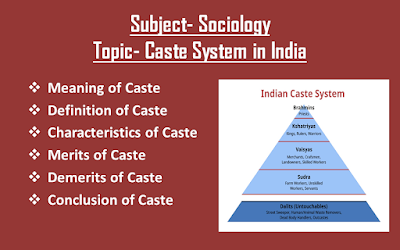Social Institution- Meaning, Definition and Characteristics
# Meaning of Social Institutions
Social institutions can be defined as social structures that are created, organized, or established by members of society in order to satisfy their own needs.
Social institutions are the foundations of society, shaping individual behavior, social relationships and collective outcomes. They provide a framework for social life, promoting order, stability, and cooperation.
Institution can be defined as a social structure having a set of rules that are created to control human behavior.
The major social institutions in society are family, education, religion, economy, and political institutions.
# Definition of Social Institutions
1. According to Emile Durkheim:- "A social institution is a group of individuals who are united by a common purpose and who share a common culture."
2. According to Max Weber:- "A social institution is a complex of social norms and relationships that are relatively stable and enduring."
3. According to Karl Marx:- "A social institution is a system of social relationships that reflect and reinforce the dominant economic and political interests of a society."
4. According to Talcott Parsons:- "A social institution is a system of social norms and values that regulate the behavior of individuals and groups.“
5. According to George Herbert Mead:- "A social institution is a pattern of social behavior that is shared by a group of individuals and is transmitted from one generation to the next."
# Characteristics of Social Institutions
1. Socialization:- Institutions shape individual behavior, values, and beliefs through socialization.
2. Established rules and norms:- Institutions have clear rules, norms, and expectations that guide behavior.
3. Structured organization:- Institutions have a defined structure, including roles, relationships, and hierarchies.
4. Adaptability and change:- Institutions can adapt and evolve over time in response to changing circumstances.
5. Symbolic representation:- Institutions are often represented by symbols, such as logos, flags, or icons.
6. Interdependence with other institutions:- Institutions are interconnected and interdependent with other institutions.
7. Accountability and responsibility:- Institutions have mechanisms for accountability and responsibility.
8. Abstract in nature:- Social institution refers to the patterns, norms, values, and beliefs that shape human behavior and interactions within a society. They are intangible and exist as shared understandings, expectations, and practices among individuals and groups.
9. Dynamic:- Institution is not static but it is dynamic in nature. Social institutions are constantly changing and evolving in response to various factors such as changes in norms and values, evolution of roles and expectations, adaption of rules and laws, etc.
10. Power dynamics:- Institutions involve power dynamics, with some individuals or groups holding more power than others.
11. Universal:- Institution exist in all the societies and all the stages of social development.
Watch video on YouTube





